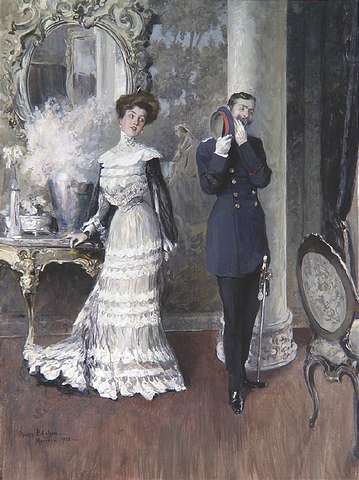I’m taught p-l-o-u-g-h
Shall be pronouncé “plow.”
“Zat’s easy w’en you know,” I say,
“Mon Anglais, I’ll get through!”
My teacher say zat in zat case,
O-u-g-h is “oo.”
And zen I laugh and say to him,
“Zees Anglais make me cough.”
He say, “Not ‘coo,’ but in zat word,
O-u-g-h is ‘off.'”
Oh, Sacre bleu! Such varied sounds
Of words makes me hiccough!
He say, “Again mon frien’ ees wrong;
O-u-g-h is ‘up’
In hiccough.” Zen I cry, “No more,
You make my t’roat feel rough.”
“Non, non!” he cry, “you are not right;
O-u-g-h is ‘uff.'”
I say, “I try to spik your words,
I cannot spik zem though.”
“In time you’ll learn, but now you’re wrong!
O-u-g-h is ‘owe.'”
“I’ll try no more, I s’all go mad,
I’ll drown me in ze lough!”
“But ere you drown yourself,” said he,
“O-u-g-h is ‘ock.'”
He taught no more, I held him fast,
And killed him wiz a rough!
— Charles Battell Loomis

